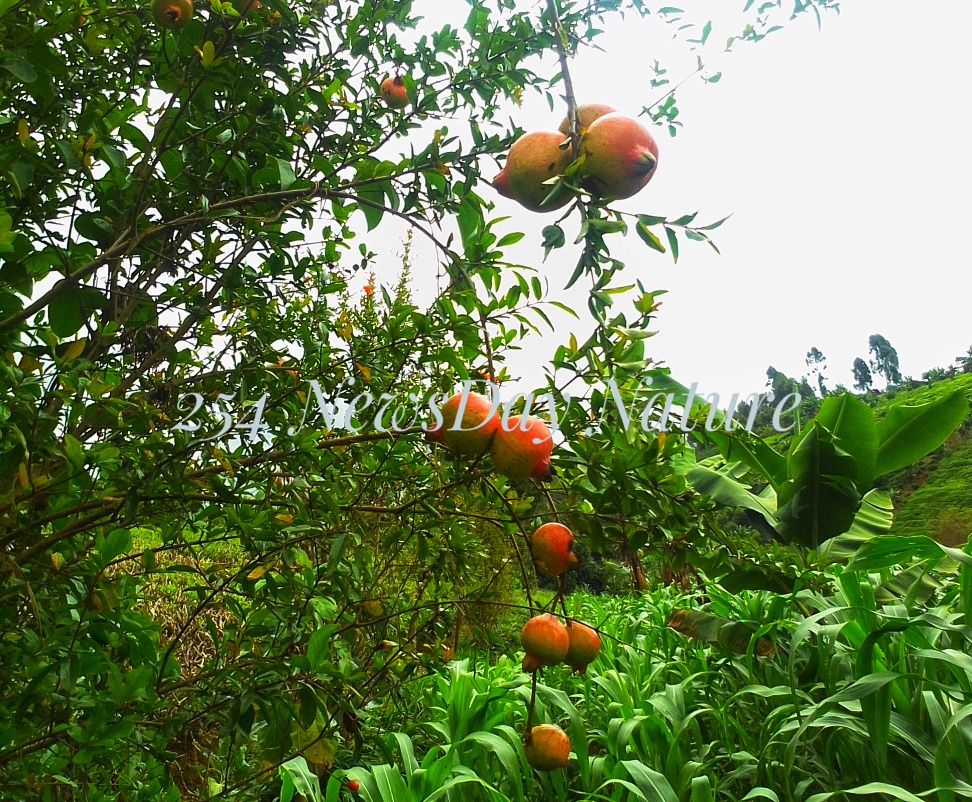 |
| The pomegranate fruit in a farm. |
It has been cultivated throughout the Mediterranean region and the Middle East for thousands of years, and is now widely cultivated in many parts of the world, including California and parts of Southeast Asia.
The pomegranate has a rounded shape and is typically about the size of a large orange, with a tough, leathery skin that ranges in color from yellow-orange to deep reddish-brown.
Inside, the fruit is divided into numerous sections or arils, each of which contains a small seed encased in a juicy, red or pink flesh. The seeds are edible and are often consumed raw or used as a garnish for salads, desserts, and other dishes.
Pomegranates are highly nutritious and are a good source of vitamins C and K, as well as potassium and fiber. They are also rich in antioxidants, which are compounds that can help protect against oxidative stress and inflammation in the body.
In addition to their nutritional value, pomegranates have long been valued for their medicinal properties. Traditional medicine practitioners in many cultures have used pomegranate juice and extracts to treat a variety of ailments, including diarrhea, dysentery, and parasitic infections.
Some studies have suggested that pomegranate extracts may also have anti-inflammatory and anti-cancer properties, although more research is needed to fully understand these potential benefits.
Pomegranates have also played a significant role in many cultures and religions throughout history. In ancient Greek mythology, the pomegranate was associated with fertility and the underworld, and was often used as a symbol of abundance and prosperity.
In many Middle Eastern and Mediterranean cultures, pomegranates are a traditional symbol of hospitality and are often given as gifts during the holiday season.
Today, pomegranates are widely available in many grocery stores and markets around the world, and are often used in a variety of culinary and medicinal applications.
Whether enjoyed as a healthy snack or used to add flavor and nutrition to a wide range of dishes, pomegranates remain a popular and versatile fruit with a rich history and cultural significance.
